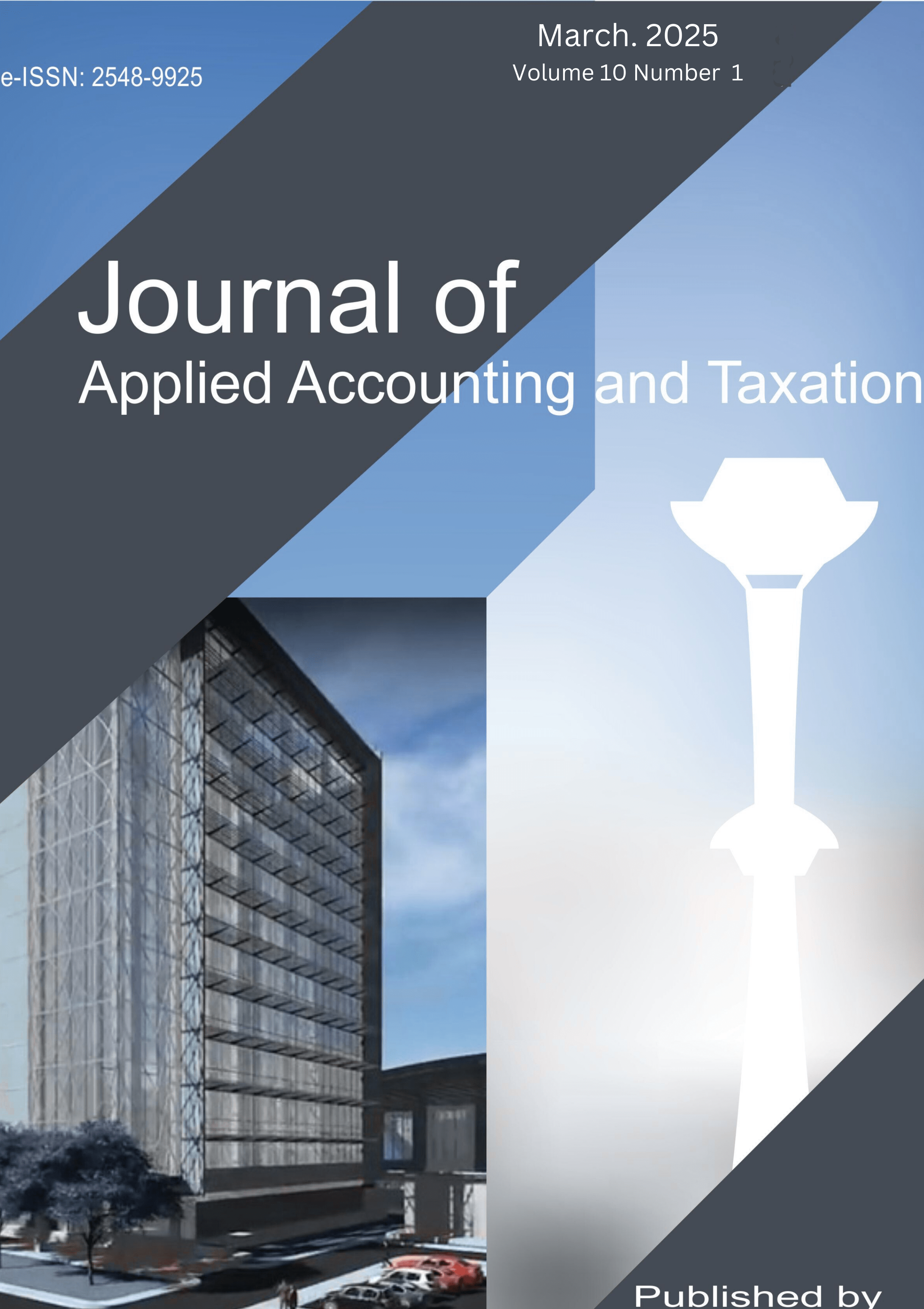Fraud Detection in Government in the Last Ten Years
DOI:
https://doi.org/10.30871/jaat.v10i1.9212Keywords:
Fraud triangle theory, fraud, opportunity, rationalization, pressureAbstract
Over the past three years, Indonesian government state losses have exhibited a noticeable upward trend. The fraud triangle theory offers valuable insights into the relationship between fraud (as manifested in state losses) and three key factors: pressure, opportunity, and rationalization. These elements are reflected in instances of revenue shortfalls, potential losses, and non-compliance with regulations. Our study analyzed data from various government entities, including the central government, local governments, state-owned enterprises (SOEs), regional-owned enterprises (ROEs), public service agencies, regional public service institutions, and other government-related agencies over the past decade (2013 to 2023). Our findings reveal that pressure stemming from revenue shortfalls, opportunities associated with potential losses, and rationalization arising from non-compliance with regulations significantly contribute to fraudulent activities within the government sector. Based on our research, the fraud triangle theory, with its focus on revenue shortfalls, potential losses, and non-compliance with regulations, provides a robust framework for identifying fraudulent practices within the government sector.
Downloads
Downloads
Published
How to Cite
Issue
Section
License
Copyright (c) 2025 Desty Wana, Abdul Rohman, Surya Raharja

This work is licensed under a Creative Commons Attribution-ShareAlike 4.0 International License.











